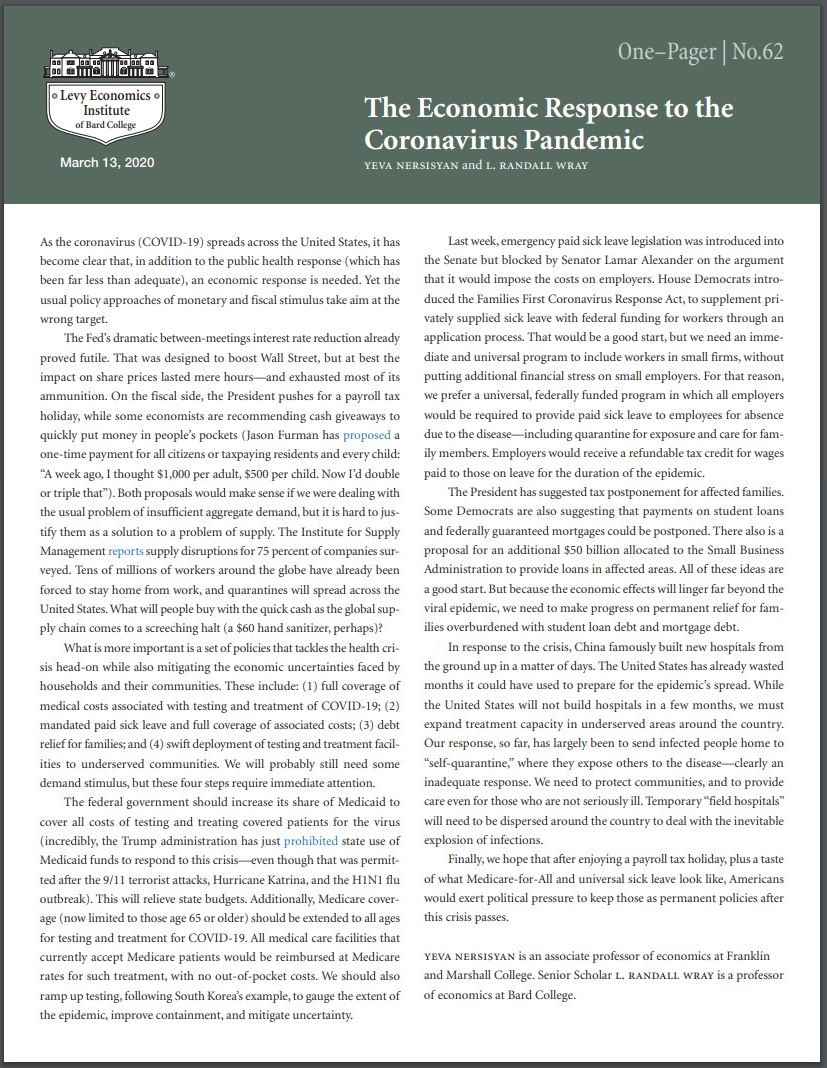
Welcome to ep 66 of Activist #MMT. Today I talk with @DEhnts & @AskerVoldsgaard about their 2020 paper responding to a 2019 mainstream paper expressing the concern for the long-term fiscal sustainability of gov't spending & its corresponding debt & interest. A brief highlight.👇
Welcome to ep 66 of Activist #MMT. Today I talk with @DEhnts & @AskerVoldsgaard about their 2020 paper responding to a 2019 mainstream paper expressing the concern for the long-term fiscal sustainability of gov't spending & its corresponding debt & interest. A brief highlight.👇
👆Since #MMT demonstrates that much more spending on public spending is perfectly safe (and desperately needed), the concern is often directed at the MMT project itself.
Here's the full episode with Dirk and Asker.👇 activistmmt.libsyn.com/ep66-1234-dirk…
Here's the full episode with Dirk and Asker.👇 activistmmt.libsyn.com/ep66-1234-dirk…
👆We first summarize the mainstream argument, and then its many flawed assumptions. This conversation inspired this post, where I summarize the argument and each of its assumptions, and describe why each is incorrect.👇 citizensmedia.tv/mmt-fiscal-sus…
👆The 2019 paper is written in what we consider to be good faith: it cites the #MMT literature & is respectful to its authors. Since this happens to be unusual, I've compiled several good-faith critiques, including responses from MMTers, here.👇 citizensmedia.tv/mmt-criticism
👆This is part one of a two-part conversation, but it's also part one of a four part conversation on the relationship between mainstream or neoclassical economics and #MMT. Parts two and three are with @SamHLevey, where we discuss the core assumptions of mainstream economics.👇
👆For even $1/month, patrons of Activist #MMT currently have exclusive and super-early access to *SEVEN* full episodes (incl. both with Sam), with both activists & academics (& several more on the way). Here's the full list, each with a brief highlight:👇 citizensmedia.tv/activist-mmt-p…
👆As enlightening and fun as it is to create this podcast, your financial support makes it a lot easier. Please consider becoming a patron of Activist #MMT. Start here:👇 patreon.com/activistmmt
👆Patrons of Activist #MMT also get the unique opportunity to ask my academic guests questions, and they also support the development of this large collection of MMT resources, which leans heavily on the MMT body of academic work:
✌️, ❤️, and #MMT 🦉 citizensmedia.tv/mmt
✌️, ❤️, and #MMT 🦉 citizensmedia.tv/mmt
• • •
Missing some Tweet in this thread? You can try to
force a refresh






